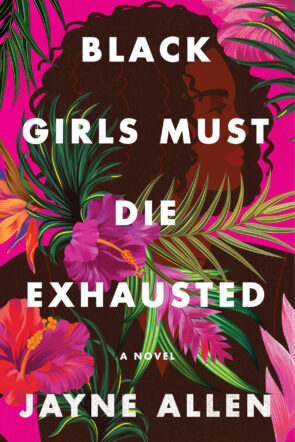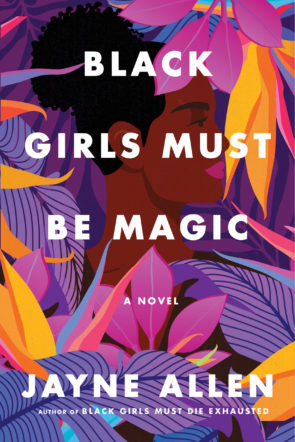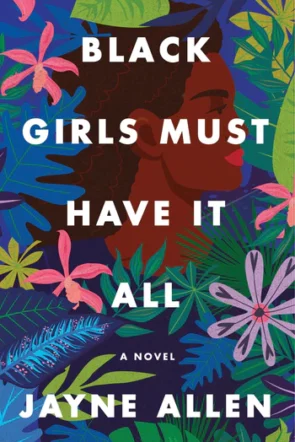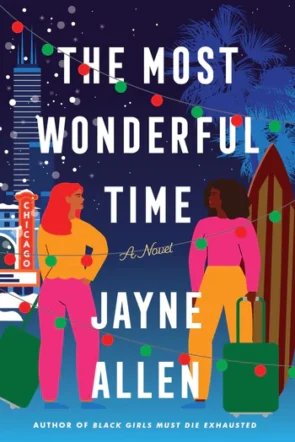Search
Jayne Allen

Author of Black Girls Must Die Exhausted (Harper Paperbacks)
Jayne Allen is a novelist, entrepreneur, attorney, and engineer. Her debut novel, Black Girls Must Die Exhausted, which Kirkus Reviews called both timely and enjoyable, was originally self-published before being acquired and expanded into a series with Harper Paperbacks in 2021.
A graduate of the Duke University Pratt School of Engineering and Harvard Law School, Jayne leverages her multidisciplinary background to empower other writers. She is the creator of Book Genius, an end-to-end book publishing course, and Quality Black Books, a publishing house dedicated to narratives reflective of Black culture and underrepresented communities.
A native of Detroit currently residing in Los Angeles, Jayne has been featured by Black Enterprise, xoNecole, and numerous popular literary platforms. Her work continues to focus on themes of modern womanhood, career ambition, and cultural identity.
Keynote Lecture Topics
-
How Not to Die Exhausted: Universal Lessons from Black Girls Who Thrive
In this talk, Jayne draws upon the inspiration used in writing Black Girls Must Die Exhausted, to bring the audience deeper into the experience of what it means to be a Black woman in contemporary times, in America, and what anyone of any race and/or gender can learn from those that have managed to thrive amid the unique blend of challenges. Many people operate under the impression that they couldn’t possibly relate on a deep and profound level to the experiences unknown to them and that they might be conditioned to not see. But the universalities of the human experience provide invaluable instruction if you just know where to look. This talk is designed to unpack the layers and to help alleviate such a feeling of disconnect.
Leveraging Jayne’s unique blend of humor, reliability, and analysis made accessible, attendees will learn about the power of authenticity, resilience, community, celebration, and self-definition as the tools reflected fictionally in the character relationships in Black Girls Must Die Exhausted and leveraged in life by many Black girls who thrive.
-
Open Door Conversations: Allyship in the Era of Cancel Culture
Part of the magic of Black Girls Must Die Exhausted is the intimacy that exists between the characters that allows for deep and honest conversations about the most sensitive of topics, including race. Unfortunately, these circumstances are not easily or often reflected in the reality of our times, making the barrier to necessary discourse often too high. And in the era of “cancel culture,” sensitive topics feel too costly to broach. Even those well-intentioned are afraid to say the wrong thing, ask the wrong question, or place too heavy of a burden on those already facing the weight of various forms of oppression.
In this talk, Jayne speaks to the creation of the fictional circumstances that, when modeled in groups, have spilled over into real-life candid and productive conversations on race, gender equity and other sensitive topics. Through a mix of story and straight-forward instruction, she shares enabling tools to create conditions that are conducive to sharing at work, home and in learning environments.
-
Relating is a Muscle – The Black Experience as a Universal Narrative
In an often-quoted statement, Jayne has said, “If I can relate to Little Women, if you can relate to Little Women in contemporary times, then you can relate to Black Girls Must Die Exhausted. Relating is a muscle.” This seemingly simple statement served as an important insight to thousands of readers in the post-George Floyd era, looking to be educated about race. Stories in all forms give us the opportunity to practice empathy and to walk in shoes outside of our own. In this talk Jayne gives a behind-the-scenes look into the circumstances that gave rise to her impetus to write Black Girls Must Die Exhausted, include the meaning of the title, the objectives behind the work, and the obstacles surmounted along the path to publishing. She leaves attendees with the tools to find themselves in any work, and especially in Black narratives that may be written out of unfamiliar perspectives including race, gender, and culture.
-
BlindSpot – Why the Urgency of Diversity is About More Than Just Company Culture
Forward-thinking companies are beginning to make substantive investments in diversity that go far beyond the basics of internal initiatives. From the recent LMVH acquisition of Jay-Z’s Ace of Spades champagne brand to the upstreaming of Black Girls Must Die Exhausted from self-published cultural phenomenon to the Harper Perennial catalogue, large companies in traditional industries are beginning to see diversity as a market-expansion opportunity within easy reach. Contemporary diversity is about future-proofing, profit and bigger, more elastic markets within a rapidly complexifying world.
In this talk, through stories, examples and analysis, Jayne discusses what she calls the “blind spot,” that exists in mature, legacy industries, coined from her days in traditional media ranging from music and now publishing, and makes the compelling case for a substantive approach to diversity that goes beyond culture metrics, resulting in bottom line-impacting opportunity that would otherwise go unseen and unexploited.




